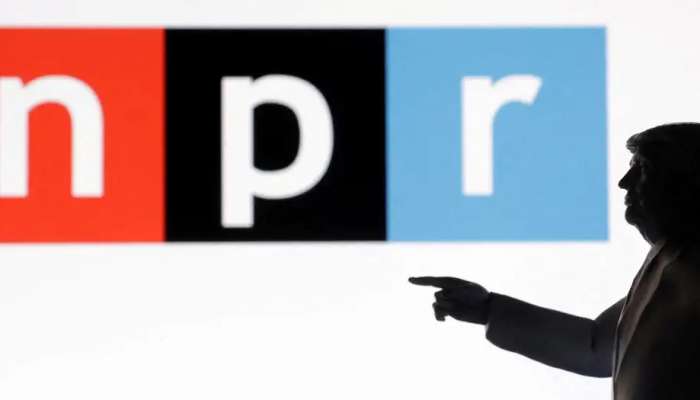
Washington, DC: National Public Radio (NPR) announced on Tuesday it is suing President Donald Trump over his executive order to cut federal funding for the nonprofit network of broadcasters.
NPR and three public radio stations wrote in the lawsuit filed in federal court in Washington, DC, that Trump's order on May 1 violated the First Amendment's protections of speech and the press and steps on Congressional authority to determine how the US government spends its funds.
The broadcasting company and the Colorado Public Radio, Aspen Public Radio and KSUT Public Radio member stations want Trump's order blocked and declared unconstitutional.
The executive order asserted that government funding of the news is "not only outdated and unnecessary but corrosive to the appearance of journalistic independence.”
According to the legal complaint, which was filed against Trump, a number of other top officials and federal agencies, added that the order "threatens the existence of a public radio system that millions of Americans across the country rely on for vital news and information."
It "expressly aims to punish and control Plaintiffs' news coverage and other speech the Administration deems 'biased,'" attorneys for the news outlets wrote. "It cannot stand."
How is NPR funded?
NPR employs hundreds of journalists whose work is broadcast by more than 1,000 local member stations.
Most of its initial funding was allocated by Congress and delivered through the Corporation for Public Broadcasting, or CPB, but that changed in the 1980s when the Reagan Administration reduced public media funding.
Only 1% of NPR's revenue now comes directly from the federal government, according to the organization. The largest share of its funding, 36%, comes from corporate sponsorships, NPR said.
The lawsuit argues that Congress has long recognized that the speech it supports with public funding "remains private — and thus fully protected from censorship, retaliation or other forms of governmental interference."
"The Order is textbook retaliation and viewpoint-based discrimination in violation of the First Amendment," the lawsuit alleges.